Filters
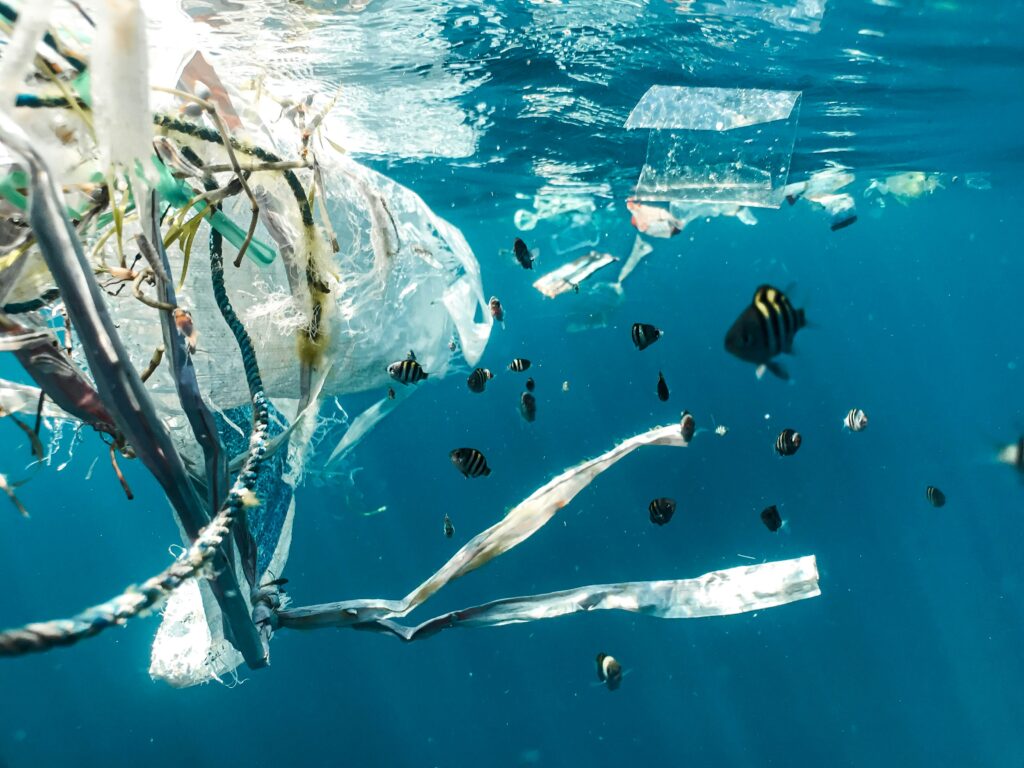
Response from the Rethink Plastic Alliance
to the public consultation on the EU Ocean Act
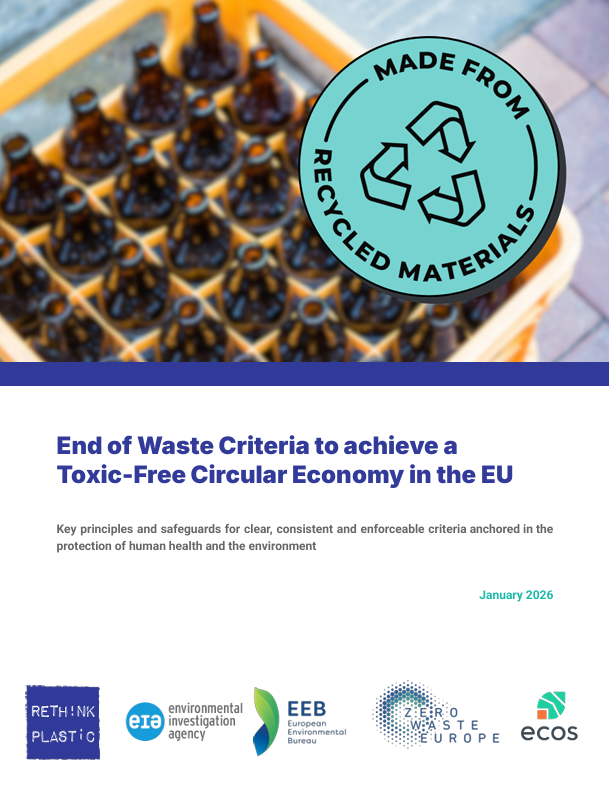
Key principles and safeguards for clear, consistent and enforceable criteria anchored in the protection of human health and the environment
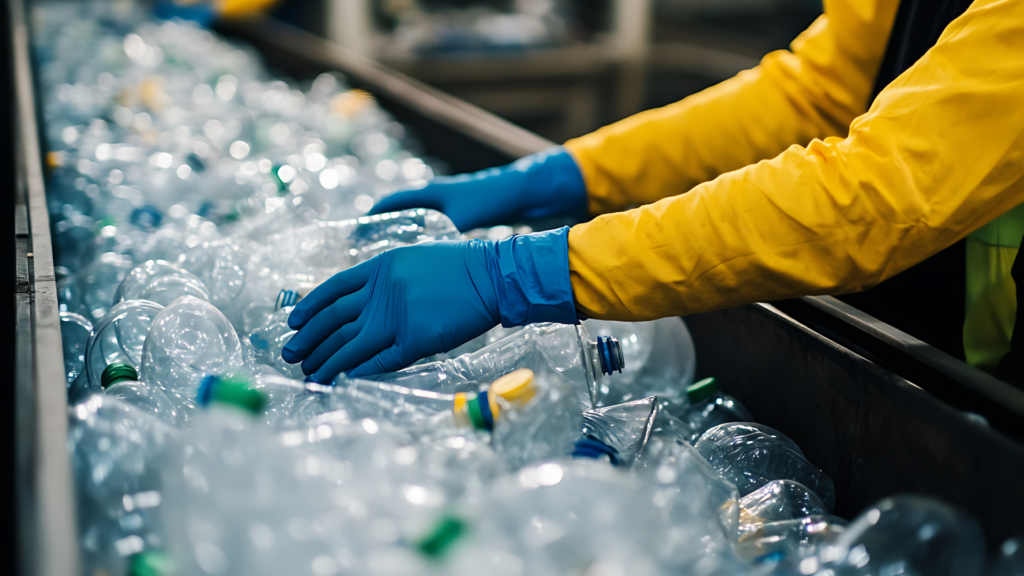
Response from the Rethink Plastic Alliance to the public consultation on the
Commission’s proposal for an Implementing Regulation to establish EU-wide End-of-Waste (EoW) criteria for plastic waste
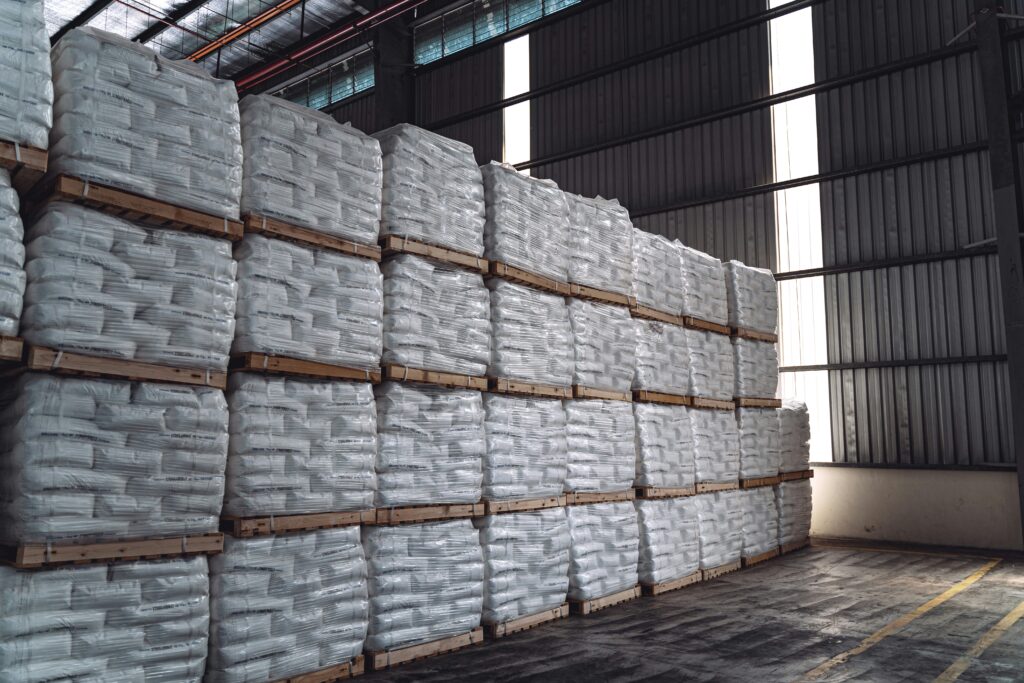
Response from the Rethink Plastic Alliance to the public consultation on the Commission’s proposal for a Delegated Act to exempt pallet wrappings and straps from the 100% reuse targets in the Packaging and Packaging Waste Regulation (PPWR, or the Regulation)
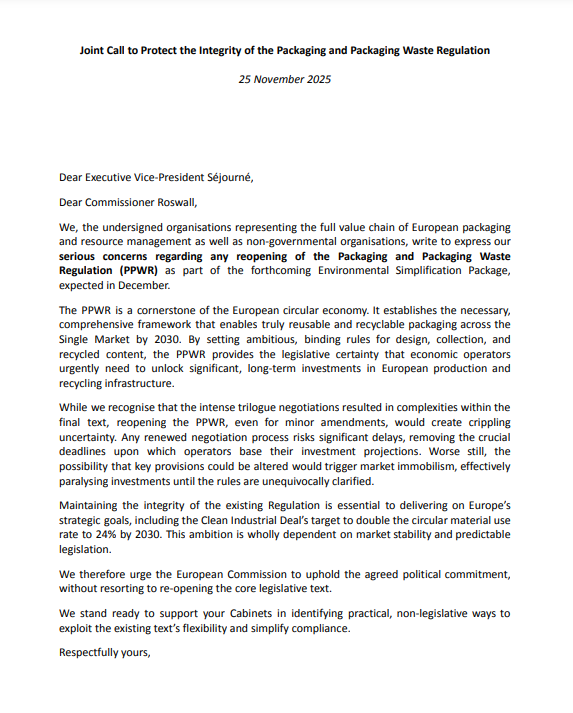
We joined a coalition of 115 signatories, consisting of trade organisations, industry and national associations, reuse businesses and leading European NGOs & environmental groups to call on Executive Vice-President Stéphane Séjourné and Environment Commissioner Jessika Roswall to protect the integrity of the PPWR.
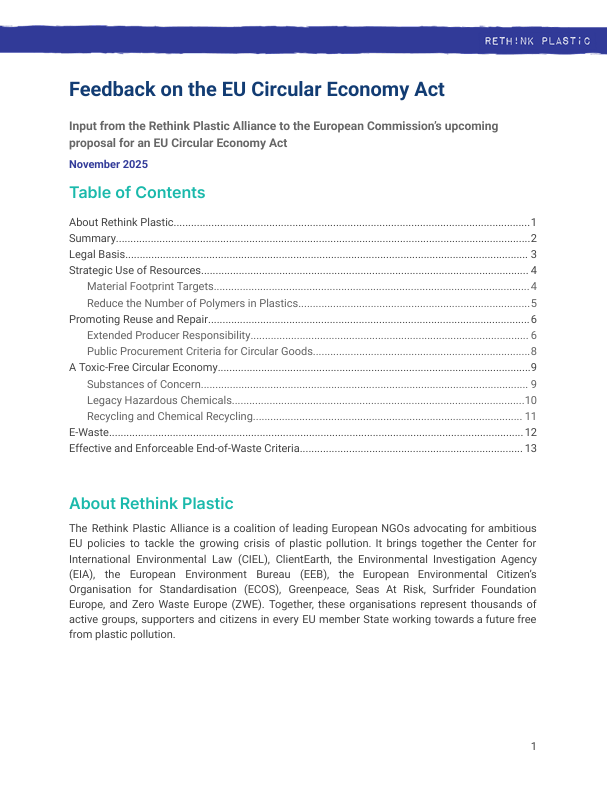
The Rethink Plastic Alliance is advocating for a CE Act that truly rises to the challenge and reflects the urgent need to reduce, reuse and recycle materials. Concerningly, the Call for Evidence suggests that the Commission’s main focus is on downstream measures. While we acknowledge and support the need to improve recycling in the EU, we are calling for a CE Act that accurately reflects the waste hierarchy and therefore also includes strong measures on waste prevention and reuse, while ensuring material loops are toxic-free.
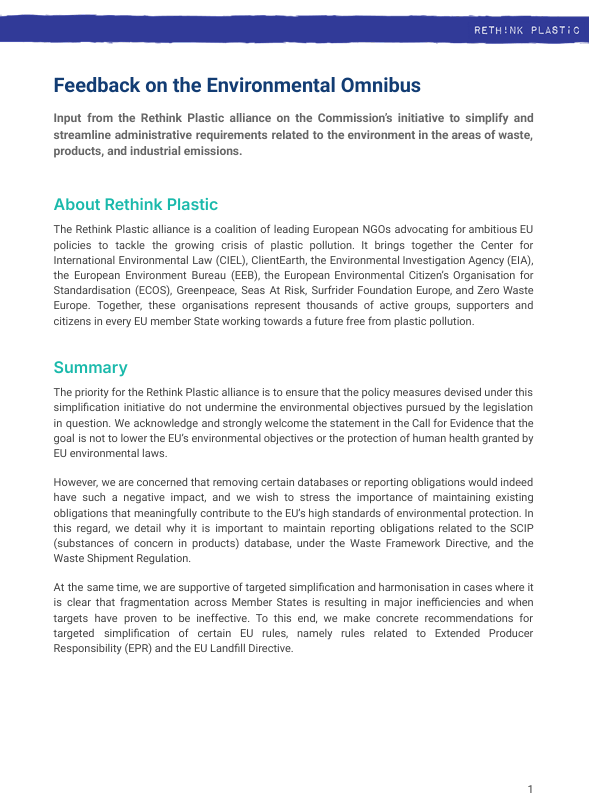
The priority for the Rethink Plastic alliance is to ensure that the policy measures devised under this simplification initiative do not undermine the environmental objectives pursued by the legislation in question. We acknowledge and strongly welcome the statement in the Call for Evidence that the goal is not to lower the EU’s environmental objectives or the protection of human health granted by EU environmental laws.
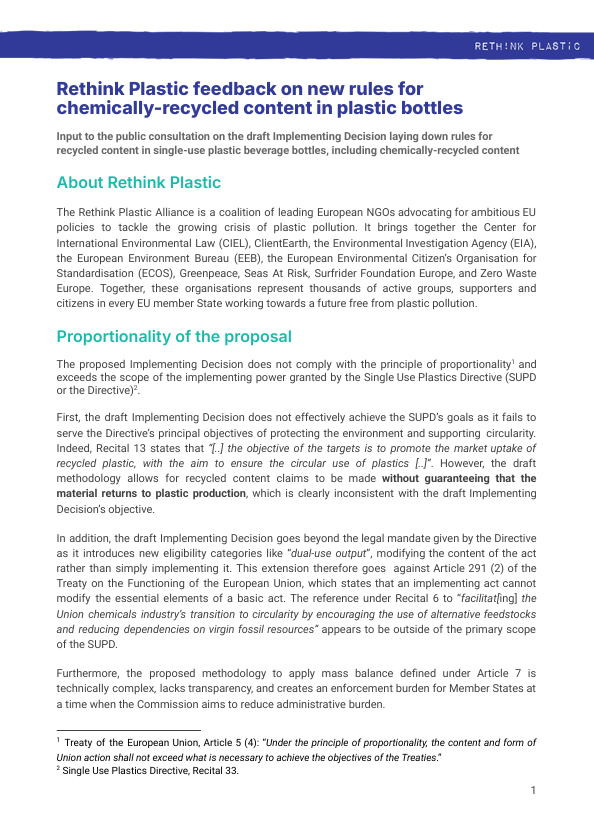
Input to the public consultation on the draft Implementing Decision laying down rules for recycled content in single-use plastic beverage bottles, including chemically-recycled content. The proposed Implementing Decision does not comply with the principle of proportionality and exceeds the scope of the implementing power granted by the Single Use Plastics Directive.
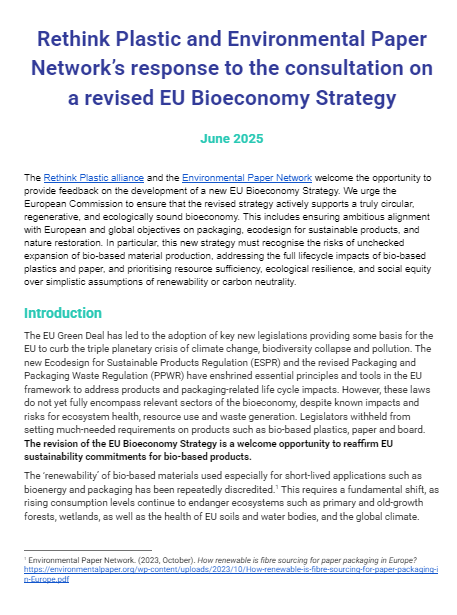
We urge the European Commission to ensure that the revised strategy actively supports a truly circular, regenerative, and ecologically sound bioeconomy.